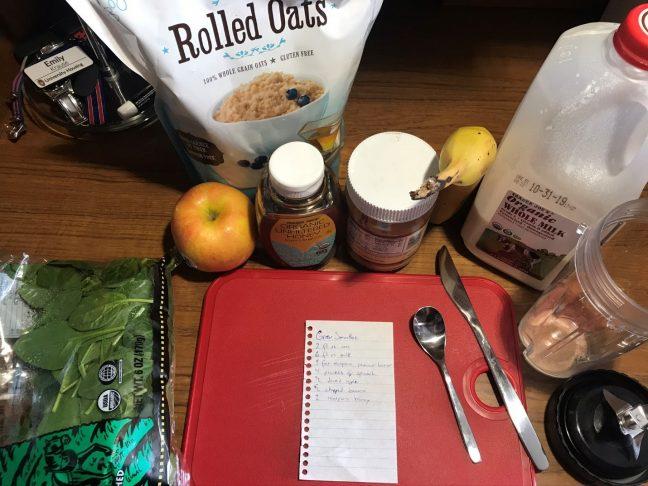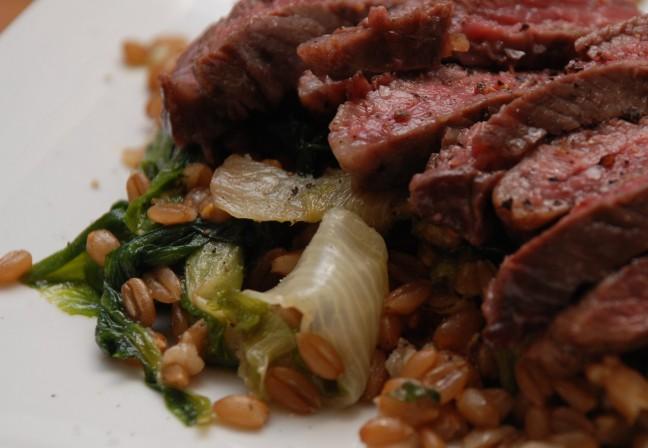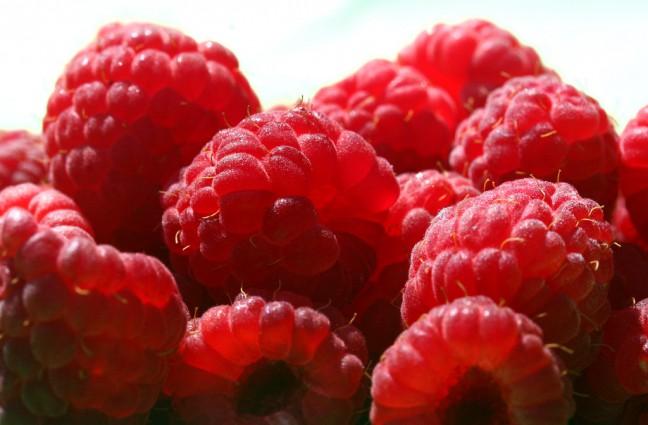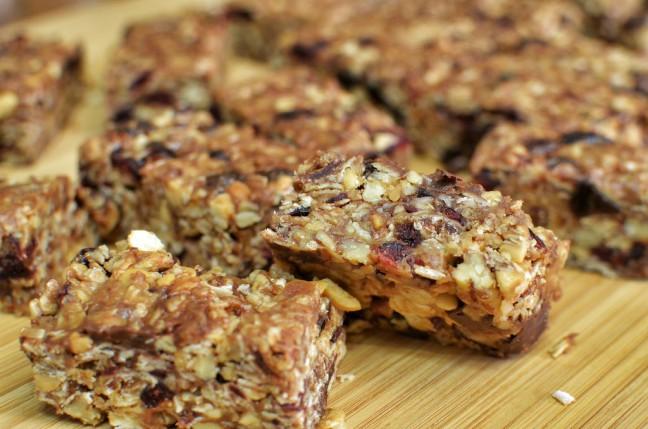Thanksgiving has come and gone, and it’s time to face reality. Only two weeks of class separate us from the nightmare known as finals week. With group projects to complete, papers to write and exams to study for, “the most wonderful time of year” quickly becomes “the most stressful time of year.”
While you can’t rewind time and attend all of those skipped lectures or catch up on the past three weeks’ worth of practice problems, there is something you can do to improve your chances of making the grade this semester: paying attention to what you eat. You may not realize it, but the foods you eat can play a huge role in your academic performance and your ability to study, focus and maintain concentration.
Now, I will admit finals week is not the time to completely overhaul your diet or embark on a mission to improve all of your eating habits at once (save that for New Year’s, after the stress of exams has passed). However, there are a few simple changes you can make in your diet to help rev up your energy levels and keep you on track for the rest of the semester.
Follow these five simple pieces of advice and you’ll be well on your way to earning that A.
Eat breakfast every day.
Breakfast is considered the most important meal of the day, as it breaks the fast since the previous night’s meal and primes your body for a full day of action. Eating breakfast boosts your metabolism, giving your body the jolt of energy it needs in the morning, which helps to improve concentration. Skipping breakfast can leave you feeling bogged down — and hungry, which can make studying or taking an exam miserable and nearly impossible. Don’t set yourself up for failure; take the time to grab a bite and start every day off right.
The optimal breakfast will keep you feeling energized all morning long and should ideally combine healthy carbohydrates in the form of fresh fruit and whole grains, along with fiber and some protein. Sorry folks, but Lucky Charms won’t do the trick if you’re aiming to stay focused for that 7:45 a.m. final. Instead, try a scrambled egg on a piece of whole wheat toast topped with a slice of cheddar, alongside an apple. For those short on time, grab a banana spread with some peanut or almond butter and a glass of milk to go.
Include protein in every meal and snack.
When consumed, protein has been known to boost dopamine levels in the brain, allowing for increased concentration levels. Protein also helps to keep you feeling satisfied and full for much longer than carbohydrates. They will allow you to stay focused on the task at hand instead of trying to quiet a rumbling stomach or satisfy a sweet tooth.
Get creative with your protein choices and give new options a try. These could include anything from steamed edamame with a dash of sea salt or cottage cheese with a sprinkle of cinnamon.
Choose whole grains.
Whole grains contain all three parts of the grain kernel and help to stabilize blood glucose levels unlike refined grains, which have been processed and stripped of some of their nutrients. The refined counterparts cause blood glucose levels to rise and fall rapidly. Spikes in blood glucose can cause you to go from feeling energized one minute to crashing on the library floor the next. Choose whole grain options for snacks and at mealtimes to prevent this downward spiral and to ensure stable energy levels all day long.
Look for whole grain breads, crackers and cereals. Choose whole wheat bread over white at breakfast and brown rice over white at dinnertime. When it comes to snacking, reach for popcorn (it’s a whole grain!) instead of that box of Cheez-Its.
Limit caffeine.
While caffeine can provide a jolt of energy in the short term, it can also increase nervousness, causing you to lose focus and have difficulty concentrating. Limit caffeine consumption to around 100 mg per day, or one shot of espresso or cup of coffee. Also, aim to get a solid eight hours of sleep every night. Enjoy a cup of coffee with a splash of milk in the morning, then switch to water throughout the day and low-fat milk at mealtimes.
Reach for healthy snacks.
Snack on whole foods like fresh-cut fruit and vegetables, nuts, seeds and low-fat dairy. When consumed together, these foods offer the right proportions of fiber, protein and healthy, unsaturated fats to help maintain stable blood glucose levels. These snacks not only taste good and can help you study successfully, but they’re also very convenient and can be stuffed in your backpack for a long afternoon or late night of studying at the library. Avoid snacks high in refined sugars and saturated fats like candy, cookies, chips and fried foods. A lot of energy is required to break down the refined sugars and saturated fats found in these foods, so less energy is then leftover for your brain. It is this kind of snacking that can lead to the dreaded energy crash.
Do yourself and your brain a favor: give these tips a try for a successful end of the semester!
This easy-to-prepare snack is perfectly portable and full of protein and healthy fats, which will boost your brain power and keep you feeling energized during even the longest study sesh. The dried fruit lends a sweet bite to this mix without leaving you in a downward sugar spiral. Tip: If you have an especially busy schedule that runs you straight through lunch, pair a handful of baby carrots and a container of Greek yogurt or a cheese stick with this munchy mix to create an easy on-the-go meal!
This delicious mix is perfect brain fuel for even the longest and most stressful days. It’s a recipe you can rely on not only for great taste but great nutrition as well!
Power Munch Mix
Ingredients:
½ cup dried, lightly salted edamame (sold at most grocery stores and bulk markets)
4 tablespoons pumpkin seeds, with shells on
¼ cup natural almonds
¼ cup mini pretzel twists
¼ cup bran cereal, Cheerios, or shredded wheat
¼ cup dried cranberries, no sugar added
¼ cup chopped dried apricot
Directions:
Mix edamame, pumpkin seeds, almonds, pretzels and cereal in a small cup or bowl. Stir in dried fruit. Makes two servings.













